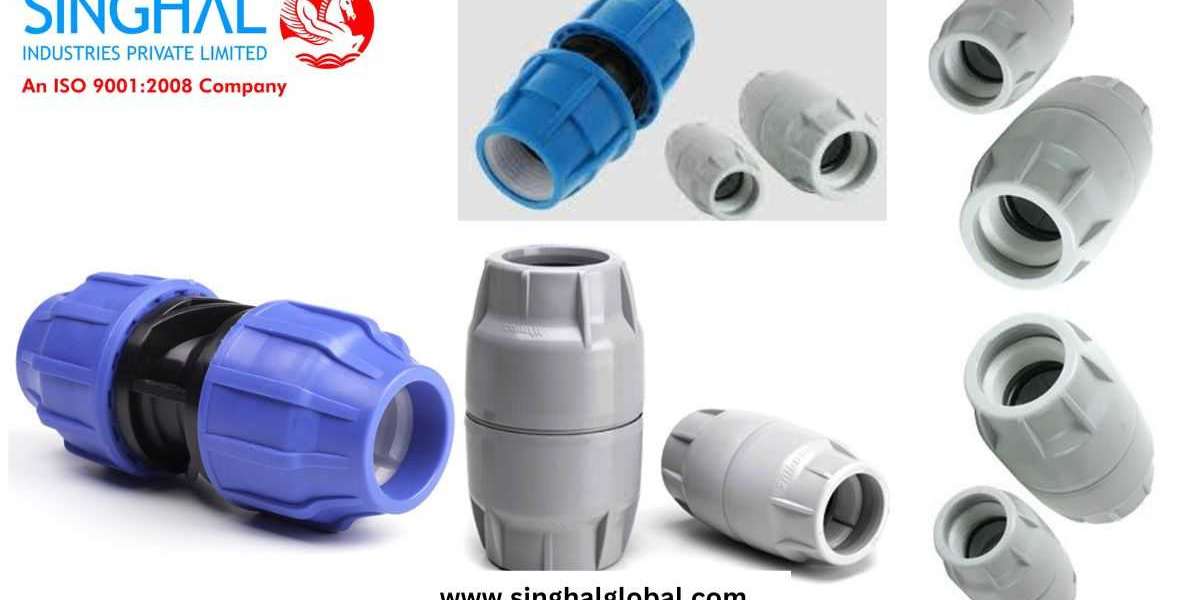High-Density Polyethylene (HDPE) has revolutionized the piping and conduit industry due to its superior durability, corrosion resistance, and flexibility. One of the most important components in HDPE piping systems is the HDPE duct coupler, which ensures a secure, leak-free connection between two sections of HDPE ducts. These couplers are designed to provide a seamless transition between pipes, offering an easy and reliable way to extend, repair, or connect duct systems. In this article, we will explore the benefits and applications of HDPE duct coupler fittings, the role of an HDPE duct coupler manufacturer, and why these components are crucial for any HDPE pipeline installation.
What is an HDPE Duct Coupler?
An HDPE duct coupler is a fitting used to join two sections of HDPE ducts, allowing for the seamless extension or connection of the ductwork. These couplers are typically made of high-density polyethylene, ensuring they share the same properties as the ducts themselves—resistance to corrosion, high tensile strength, and the ability to withstand pressure and extreme environmental conditions.
HDPE duct couplers are available in various sizes and configurations to meet the specific requirements of the ducting system. They can be used in a range of applications, including electrical conduit systems, telecommunications, and water and gas piping. By providing a strong, durable connection, HDPE duct coupler fittings ensure that the entire piping system remains intact and functions as designed.
Benefits of HDPE Duct Couplers
Durability: HDPE duct couplers are designed to withstand harsh environmental conditions, including extreme temperatures, UV exposure, and chemical corrosion. This makes them ideal for both underground and above-ground installations.
Leak-Free Connection: When properly installed, HDPE duct coupler fittings create a leak-proof seal, preventing any loss of pressure or escape of gases or liquids from the ductwork.
Flexibility and Versatility: HDPE duct couplers can be used for various applications, from connecting simple ducts to more complex multi-diameter systems. Their versatility allows them to meet the needs of both residential and industrial projects.
Ease of Installation: These couplers are typically designed for quick and easy installation, often requiring no special tools or adhesives. This reduces labor costs and minimizes installation time, making them a cost-effective choice.
Long Lifespan: Because HDPE is highly resistant to corrosion, wear, and environmental damage, HDPE duct coupler fittings tend to have a longer lifespan than couplers made from other materials.
Cost-Effective: With their longevity, ease of installation, and minimal maintenance requirements, HDPE duct couplers are a cost-effective solution for long-term piping and ductwork systems.
Applications of HDPE Duct Couplers
HDPE duct coupler fittings are used in a wide variety of industries where secure and reliable ducting systems are necessary. Some common applications include:
Telecommunications: HDPE ducting is commonly used for protecting and routing cables in telecommunication networks. The use of HDPE duct couplers ensures that cable installations remain intact and secure, even in harsh conditions.
Electrical Conduit Systems: In electrical installations, HDPE duct couplers help protect wires and cables from environmental elements. These couplers allow the electrical conduit to be extended or altered without compromising the integrity of the system.
Water and Gas Pipelines: HDPE duct couplers are used in the installation of water and gas pipelines, where their strength and resistance to corrosion ensure the system remains functional and leak-free for years.
Industrial Applications: In industrial settings, HDPE duct coupler fittings are used to connect various pipes and ducts that transport chemicals, liquids, or gases. Their high resistance to abrasion and chemicals makes them suitable for industries like manufacturing, mining, and chemical processing.
Role of an HDPE Duct Coupler Manufacturer
An HDPE duct coupler manufacturer plays a crucial role in the production of high-quality couplers designed to meet industry standards. These manufacturers ensure that each coupler is tested for strength, durability, and performance, ensuring they are fit for their intended purpose. With advancements in HDPE manufacturing technology, these manufacturers can create couplers that are optimized for specific applications, including varying sizes, pressure ratings, and configurations.
The expertise of an HDPE duct coupler manufacturer is critical in ensuring that the couplers are compatible with a range of ducting systems and meet the necessary regulations and quality standards. These manufacturers often work closely with construction and engineering firms to provide customized solutions, ensuring the couplers are tailored to the unique needs of each project.
FAQs
1. What are the main advantages of using HDPE duct couplers over other types of couplers?
HDPE duct couplers offer several key advantages, including high durability, resistance to corrosion, and the ability to withstand extreme environmental conditions. They provide leak-proof connections, ensuring that the entire ducting system operates efficiently and safely. Additionally, HDPE duct couplers are lightweight, easy to install, and cost-effective, making them an ideal solution for a wide range of applications.
2. How do you install an HDPE duct coupler?
Installing an HDPE duct coupler is a simple and straightforward process. First, ensure that the ends of the ducts are clean and free from debris. Then, slide the coupler onto the ends of the pipes or ducts that need to be connected. Depending on the type of coupler, it may require a locking mechanism or simple pressure fitting to ensure a secure connection. Always follow the manufacturer’s instructions to ensure proper installation.
3. Are HDPE duct couplers compatible with all types of HDPE ducts?
Yes, HDPE duct coupler fittings are designed to be compatible with a wide range of HDPE ducts. However, it is essential to choose the correct coupler size and type based on the specific requirements of the ducting system, such as diameter, pressure ratings, and the type of environment it will be used in. Consulting with an HDPE duct coupler manufacturer can help ensure compatibility and optimal performance.







